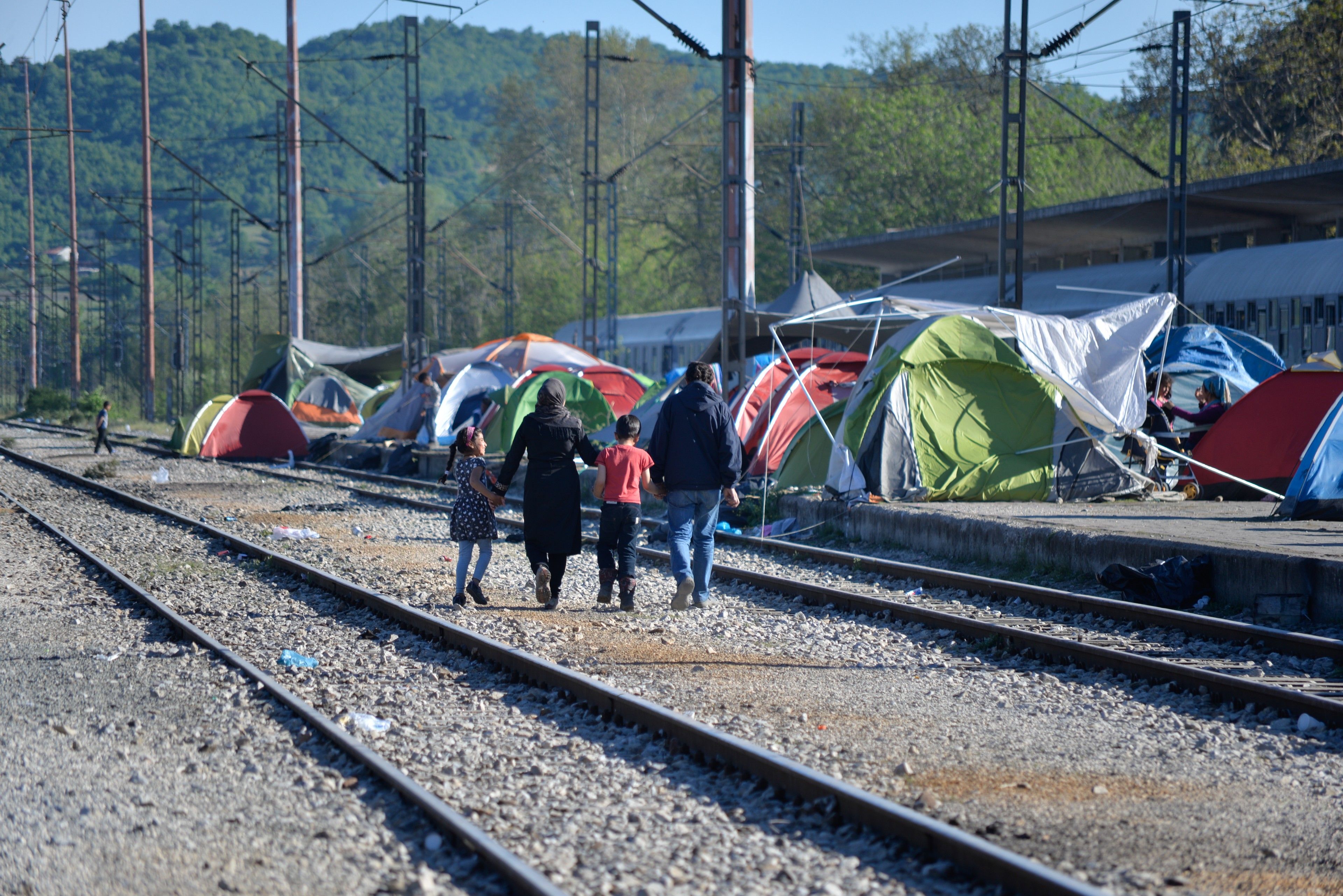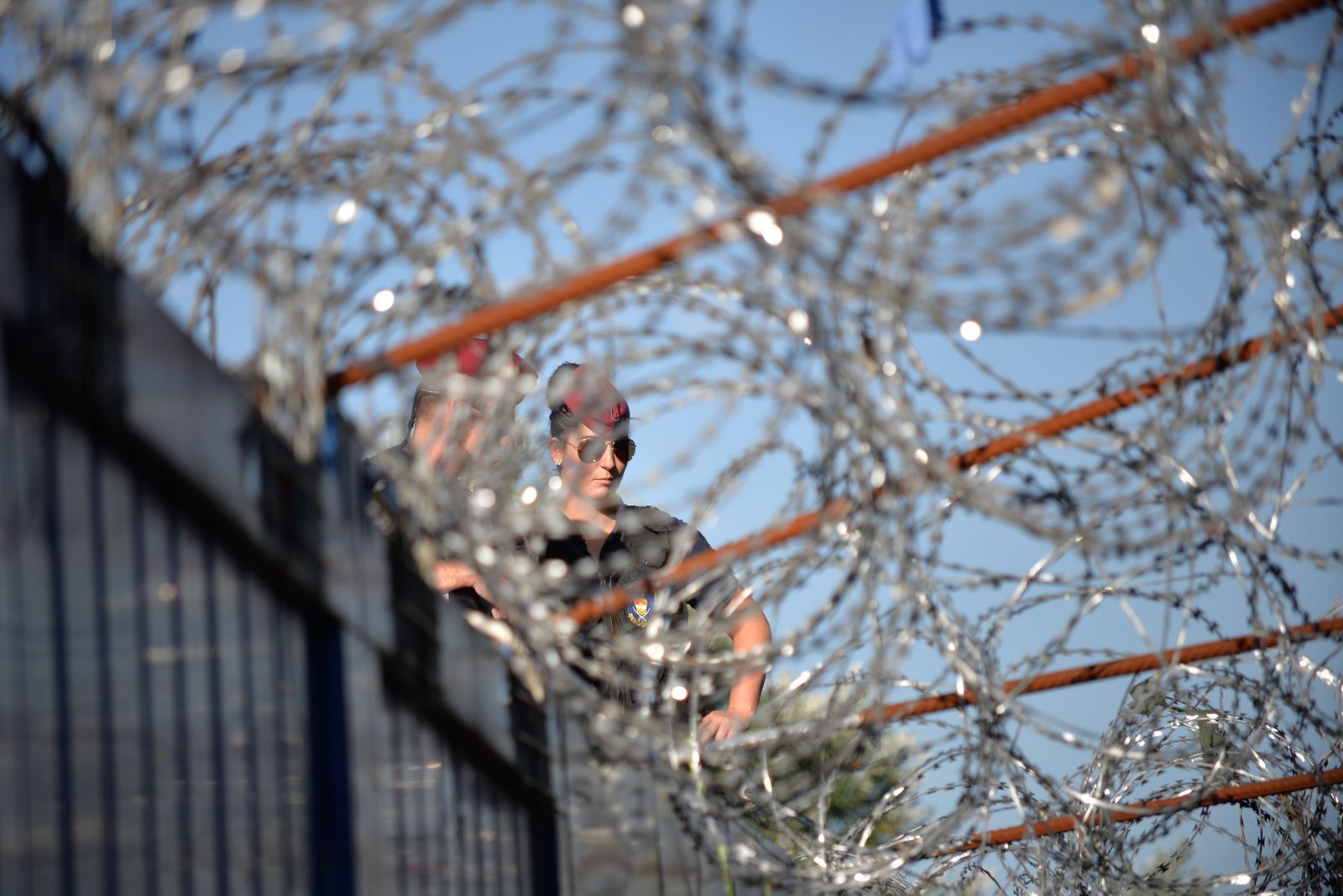In 2015, large numbers of people sought refuge in the north-western countries of Europe. Four years of the war in Syria had already resulted in at least 6 million refugees, but they weren’t alone. Refugees from Afghanistan, who did not have resolved status in Iran and Pakistan and were tired of waiting for their country to become peaceful and prosperous, joined the Syrians who undertook this perilous journey. The journey was also undertaken by people from war-torn Iraq and other Middle Eastern and North African countries who were exhausted by poverty and violence caused by Western imperialism and colonialism.
A “disobedient” mass mobilization that “disrupted the European regime of border control” drew attention to the so-called “Balkan route” being taken by these people on the move. Once the global mainstream media, along with European Union policy-makers, referred to this mass mobilization in the language of crisis — as a “refugee crisis” or more dramatically “the biggest migration crisis in Europe since the Second World War” — the “altruistic” feelings of many living in the West were aroused. People started to organize across Europe, but also from North America and even Australia — even though both of those had their own fortresses to tackle — collecting humanitarian aid for the refugees. Bringing with them lots of unsolicited humanitarian aid, “do-gooders” flocked to the “hot spots” where the media reported that refugees were appearing in greater numbers.
Many do-gooders followed media reports to decide where to go. Of course, given that the crowded Greek islands — Lesvos, Samos and Chios in particular — were the most reported on, many went there. But the media needed dynamic news, and reporting followed new “crises” that were appearing along the Balkan route and beyond. After the Greek islands, do-gooders started popping over to inland Greece (Piraeus port, Athens, Thessaloniki, Idomeni), then the park near the train and bus stations in Belgrade, then Preševo, then Horgoš and Roszke, and later Budapest’s Keleti railway station, among other places. Some of the many do-gooders — both organized groups and individuals — would stay a few weeks; some would stay for a longer time while others would come for a few days and move on or return home.
I was one of them. And I know how you get hooked — whether due to feelings of compassion, usefulness, or adventure.

As someone who survived the war in Bosnia and Herzegovina (BiH) and who experienced some form of displacement, as well as a feminist socio-legal scholar and human rights activist, I not only had many mixed feelings but was also very aware of my responsibility to bear witness and act to prevent degrading and inhuman treatment of people. The lessons from the regional feminist peace activism during the war in BiH taught me several things: solidarity and empathy are important, but they cannot, and must not, be reductively understood as the provision of care. Rather, they should primarily be understood as political actions.
Engaging in solidarity actions with people on the move on the Balkan route when you see and understand the world around you through a feminist lens enables you to recognize oppression and the mechanisms of violence. It enables you to see how EU migration policies toward people passing through the Balkans are becoming increasingly dehumanizing, racist and violent: from initial acts of compassion and charity, through the experience of strictly controlled EU migration policies and the militarization of borders, and the new approaches to “migration management” with the co-option of international multilateral institutions, such as the International Organization for Migration (IOM).
We have all continued with our unsolicited charity, but feminist principles demand from us far more than just being passive witnesses of violence. More than five years since the increase in the number of people passing through the Balkans was publicly registered, and with the movement of people ongoing, it is high time to consider what solidarity with people on the move means and entails in order to resist ever-increasing violence, racism and fascism against people on the move.
Fortress Europe
Fortress Europe has been the term used for at least the last three decades in reference to EU migration policies that have promoted the criminalization of irregular migrations, the militarization of EU borders and the paying of non-EU countries to prevent migrants reaching EU borders. These policies have resulted in tens of thousands of deaths, while the Mediterranean has become the world’s deadliest border zone.
Over the last 20 years, many people who arrived in Greece irregularly, either by land or by sea, stayed in Greece. However, staying in Greece was not an option for many — for numerous reasons, including the fact that Greece itself was affected by such economic turmoil that many Greeks left the country to find a better life.
In order to reach the rest of the EU, many migrants took a land route through the Balkan countries connecting Greece with other parts of the EU.

People on the move through the Balkan route
The Balkans have always been a trade and transit route for people and goods due to a geographical position bridging West and East. It was therefore logical that the region also became the transit route for people forced into irregular migration as they sought safety from war, persecution, poverty, the consequences of climate change or something else.
The Balkan route is not an easy choice for people to undertake. In addition to its difficult terrain and harsh climate, the Balkans have the complications and challenges of lots of borders.
Many countries in the region have not been, and are still not, part of either the EU or the Schengen border regime. In fact, many of the people from the Balkans themselves have had their own share of migration experiences and struggles with Fortress Europe, while escaping either the wars of the 1990s or economic and political hardship after the wars. EU border management policies have further affected and shaped Balkan countries’ border and asylum policies.
Read more here





